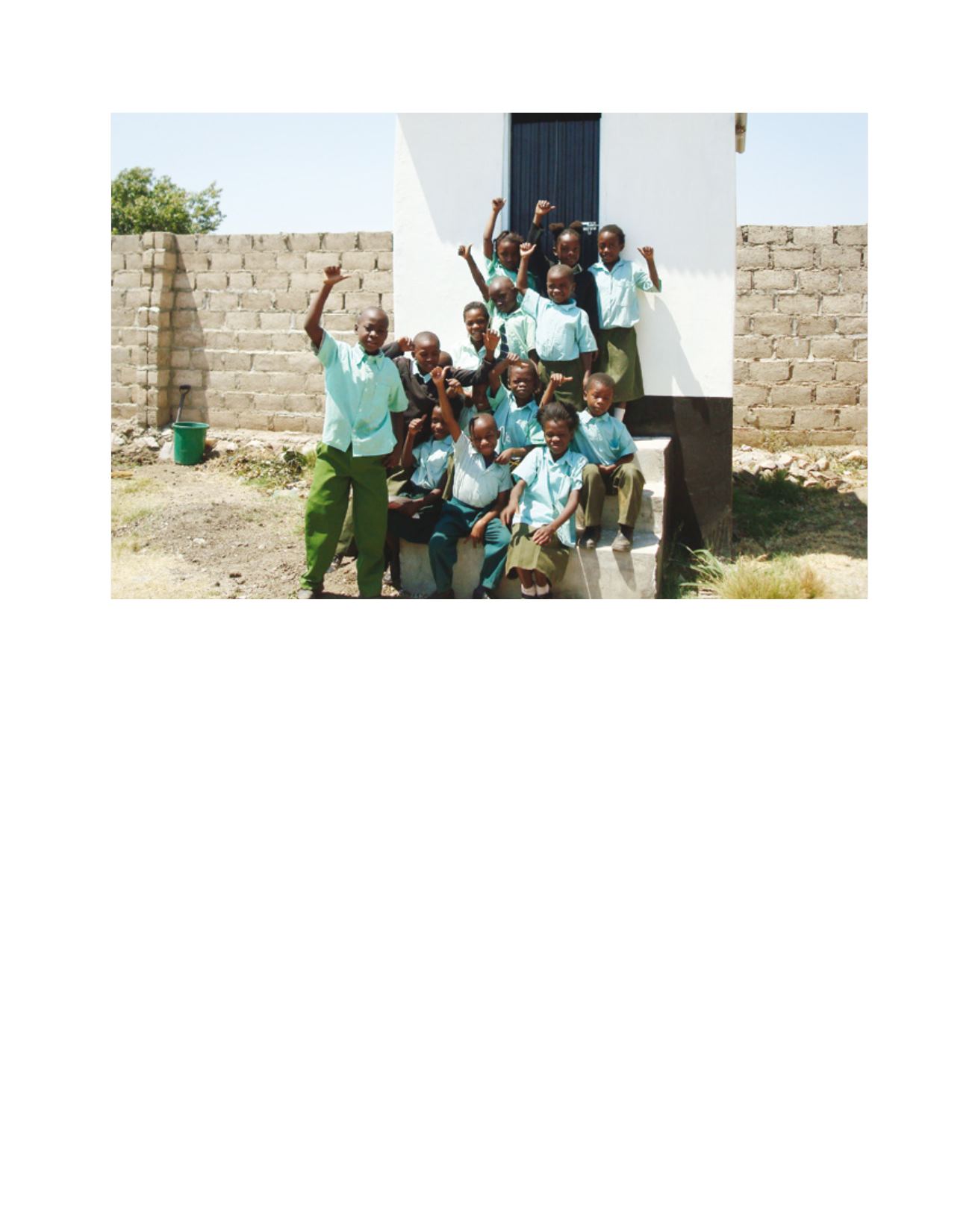

[
] 243
W
ater
C
ooperation
, S
ustainability
and
P
overty
E
radication
Water users, especially women, were considered in
the planning, distribution and management of water
services. The autonomy of water utilities was increased,
water tariffs were set at a reasonable level, water meters
were installed, and water leakages were reduced.
Finnish support to Hanoi Water Works ended in
2000 and for Haiphong in 2004. Thereafter, the latter
has been supported by concessional credits (inter-
est-subsidized loans). Haiphong Water Works has
improved its operations considerably, and its bench-
mark indicators are of a high international level. In
2003 the Water and Sanitation Programme for Small
Towns (WSPST) started, originally in 22 townships.
Experience has taught that building adequate capacities
in conditions like these takes more time than antici-
pated as all the same steps need to be taken irrespective
of the town’s size. The key lesson taught by the WSPST
is that while secure water supply is very high on the
agenda of communities, sanitation places much lower.
In the current policy and regulatory framework it is also
difficult to place management of wastewater treatment
facilities on a sustainable footing.
In Viet Nam, Finland also cooperates closely with the
WB-WSP, as it is partly funded by Finland and is in
a strong position to create key sector knowledge and
influence the regulatory framework effectively. Finnish
experience is at the disposal of the Government of Viet
Nam and other development partners.
nologies that will enable multiple use of services and use of water
resources for productive purposes. The key requirement for support
is a village-level Water Uses Master Plan that allows the prioritiza-
tion and optimization of water resources use. The project is based
on a step-by-step approach through learning on the spot and other
external support. In the second phase (2010-15) cooperatives have
been – and will increasingly be – established with the aim of
promoting small-scale farming by households.
Finland has also supported the UNICEF WASH programme in
Nepal. By partnering with this multilateral organization, Finland
aims to upscale the bilateral lessons it has learned on the national
level and support the move towards a sectoral programme in Nepal.
Viet Nam
In 1986 Viet Nam started to reform its planned communist
economy. Finnish support to Hanoi Water Works started in 1985
and Haiphong followed in 1990. Both projects lasted some 15 years
and involved several phases. They began with crisis support for key
areas of the networks in urgent need of rehabilitation and expansion,
and developed towards building an independent and operationally
sustainable utility.
In 1993 a long-term general plan was prepared for Haiphong, after
which the World Bank became the major financier while Finland
supported planning, supervision and management, and govern-
ance development. The commitment to long-term support proved
important. Other preconditions for success included trust in Finnish
know-how and maintaining a balance between construction, lead-
ership, financial management and human resources development.
The Dry Toilet project in Zambia
Image: Sari Huuhtanen


















